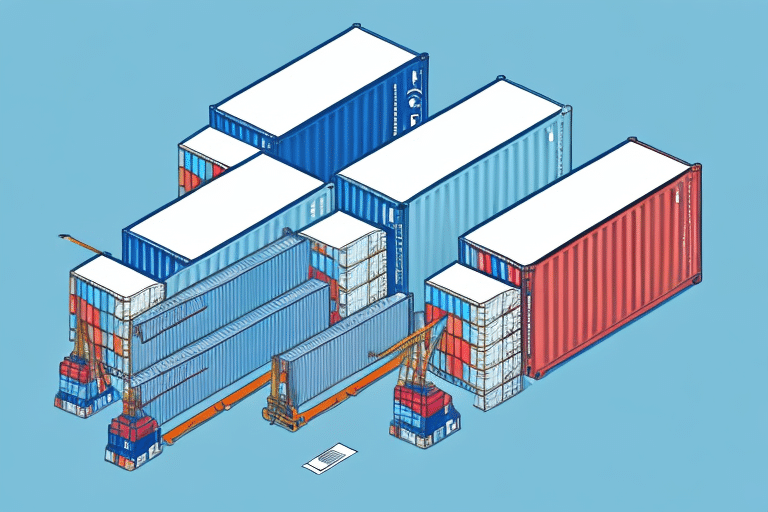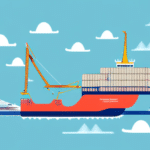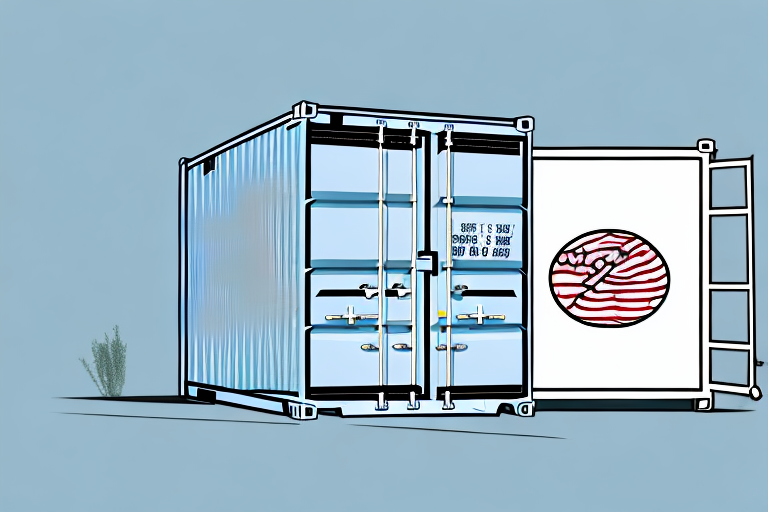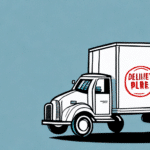Who Pays for FOB Destination Shipping?
FOB shipping terms are frequently used in international trade, specifying the obligations of the buyer and seller regarding the shipment of goods. The term FOB stands for "Free on Board," and the two most commonly used types are FOB shipping point and FOB destination. In this article, we will focus specifically on FOB destination and answer the question that many businesses, importers, and exporters often ask: Who pays for FOB destination shipping?
Understanding FOB Destination Shipping
FOB destination is a shipping term that refers to an agreement between buyers and sellers wherein the responsibility for the shipped goods remains with the seller until the goods have been delivered to the buyer's specified destination point. The seller is responsible for the costs of shipping, delivery, and unloading of the goods at the destination.
Responsibilities of the Seller
- Shipping Costs: The seller bears all costs associated with transporting the goods to the buyer's location.
- Insurance: The seller is responsible for insuring the goods during transit.
- Risk of Loss: The seller retains the risk of loss or damage until the goods reach the buyer's specified destination.
Responsibilities of the Buyer
- Receiving Goods: The buyer is responsible for unloading the goods and any costs related to receiving them at the destination.
- Post-Delivery Costs: Any costs incurred after the goods have been delivered to the destination point are the buyer's responsibility.
What Does FOB Destination Shipping Mean?
When a delivery is made using FOB destination shipping, the seller is responsible for any damages or losses that occur during transport. This includes mishandling or incorrect delivery of goods along the way. The seller must take necessary steps to ensure that the goods are delivered in good condition and on time.
FOB destination shipping is often preferred by buyers because it provides greater protection and control over the delivery process. Buyers can be assured that their goods will arrive in good condition and on time without worrying about additional costs or liabilities.
However, FOB destination shipping can be more expensive for sellers, as they are responsible for all transportation-related costs, including shipping fees, insurance, and any other expenses that may arise during delivery. Sellers may need to incorporate these additional costs into their pricing strategy to maintain profitability.
Difference Between FOB Destination and FOB Shipping Point
FOB destination differs from FOB shipping point in the transfer of responsibility. With FOB shipping point, the responsibility for the goods transfers to the buyer once they are loaded onto the carrier's vehicle. The seller is only responsible for getting the goods to the shipping carrier's designated pickup location.
In contrast, with FOB destination, the seller retains responsibility until the goods reach the buyer's designated location. If any damage or loss occurs during transit, the seller covers the costs. FOB destination is often preferred by buyers seeking assurance that goods arrive in good condition and are willing to pay extra for this added protection.
Who Bears the Responsibility for FOB Destination Shipping Costs?
While the seller is generally responsible for the costs of FOB destination shipping, the buyer may still bear some costs in certain situations. For instance, the buyer may need to pay for additional shipping charges if the goods require expedited delivery or special handling due to their size, weight, or fragility.
It's crucial for both parties to clearly define their responsibilities for FOB destination shipping costs in the sales contract to avoid confusion or disputes during the shipping process. Additionally, obtaining insurance coverage for the goods during transit is recommended to protect against potential damages or losses.
Factors Affecting the Payment of FOB Destination Shipping Charges
Several factors can influence who pays for FOB destination shipping charges, including:
- Negotiated Terms: The specific terms agreed upon between the buyer and seller.
- Type of Goods: Perishable or fragile items may incur higher shipping costs.
- Distance: Greater distances can lead to increased transportation expenses.
- Shipping Carrier Rates: Variations in carrier pricing can affect overall shipping costs.
- Shipping Method: Air freight, sea freight, and land transportation have different cost structures.
Additionally, destination country's customs regulations may impose additional fees or require specific documentation, impacting the overall shipping cost. It's important to research and understand these regulations before shipping goods internationally.
Legal Aspects of FOB Destination Shipping
FOB destination terms are subject to modification based on the specific needs of the buyer and seller, but any changes must be agreed upon in writing to be legally binding. Key legal aspects include:
Risk of Loss and Title Transfer
The risk of loss transfers from the seller to the buyer once the goods are delivered to the buyer's specified location. Similarly, the title of the goods transfers at the point of delivery. Clearly defining these terms in the contract is essential to avoid disputes.
Insurance Obligations
Both parties must agree on who is responsible for obtaining insurance coverage for the goods during transit. Adequate insurance protects both parties from potential losses due to damage or theft.
Contractual Clarity
All terms related to FOB destination shipping should be clearly outlined in the sales contract, including responsibilities, costs, and procedures in case of disputes or unforeseen circumstances.
How to Negotiate FOB Destination Shipping Terms with Suppliers
Negotiating FOB destination shipping terms requires clear communication and a thorough understanding of both parties' needs. Here are some tips:
- Understand Your Shipping Needs: Assess the type, size, and sensitivity of the goods to determine appropriate shipping methods and costs.
- Evaluate Shipping Costs: Ensure that all associated costs are reasonable and align with industry standards.
- Set Clear Timelines: Establish deadlines for shipment preparation and delivery to meet business requirements.
- Discuss Contingency Plans: Prepare for potential delays or issues by having backup plans in place.
- Review Insurance Coverage: Agree on insurance responsibilities to protect against potential losses.
Pros and Cons of FOB Destination Shipping for Buyers and Sellers
Advantages for Sellers
- Customer Satisfaction: Ensuring goods arrive safely can enhance customer trust and satisfaction.
- Control Over Delivery: Sellers can manage the delivery process to maintain quality standards.
Disadvantages for Sellers
- Increased Costs: Bearing all shipping-related expenses can reduce profit margins.
- Risk of Damage or Loss: Sellers are liable for any damages or losses during transit.
Advantages for Buyers
- Reduced Risk: Buyers are protected from damages or losses during transit.
- Greater Control: Buyers can choose their preferred carriers and shipping methods.
Disadvantages for Buyers
- Higher Costs: Buyers may face higher prices as sellers incorporate shipping costs.
Tips for Managing FOB Destination Shipping Costs
- Partner with Reliable Carriers: Collaborate with carriers that offer competitive rates and dependable service.
- Optimize Packaging: Use appropriate packaging to minimize size and weight, reducing shipping costs.
- Consolidate Shipments: Combining multiple orders can lead to bulk shipping discounts.
- Negotiate Rates: Leverage your shipping volume to negotiate better rates with carriers.
- Implement Efficient Logistics: Streamline your supply chain to reduce transit times and costs.
Additionally, consider using eco-friendly packaging materials, which can reduce costs and demonstrate a commitment to sustainability.
Common Mistakes to Avoid When Dealing with FOB Destination Shipping
- Lack of Clarity: Failing to clearly define shipping terms can lead to misunderstandings and disputes.
- Inadequate Documentation: Not properly documenting the condition of goods before shipping can complicate claims for damages.
- Ignoring Customs Regulations: Overlooking destination countries' customs requirements can result in delays and additional fees.
- Underestimating Costs: Failing to account for all shipping-related expenses can impact profitability.
- Neglecting Insurance: Not securing adequate insurance coverage exposes both parties to financial risks.
By avoiding these common mistakes, both buyers and sellers can ensure a smoother shipping process and maintain strong business relationships.
Alternatives to FOB Destination Shipping
While FOB destination shipping is a widely used term, other shipping terms may be more appropriate depending on the situation:
EXW (Ex Works)
EXW places the responsibility of transportation and insurance on the buyer. The seller is only responsible for making the goods available at their premises.
CIF (Cost, Insurance, and Freight)
CIF places responsibility on the seller for transportation and insurance up to the port of destination. The buyer assumes responsibility once the goods reach the port.
DDP (Delivered Duty Paid)
DDP places maximum responsibility on the seller, who handles all costs and risks involved in delivering goods to the buyer's location, including duties and taxes.
Choosing the right shipping term depends on the specific needs and capabilities of both parties involved in the transaction.
Case Studies: Successful Implementation of FOB Destination Shipping
Several businesses have successfully implemented FOB destination shipping by clearly defining contracts, ensuring meticulous packaging and transport processes, and collaborating with reliable shipping carriers. For example, a mid-sized electronics manufacturer partnered with a reputable logistics company to manage FOB destination shipments, resulting in a 15% reduction in transit-related damages and improved customer satisfaction.
Another case involved an apparel retailer who negotiated favorable shipping rates with a global carrier, allowing them to offer competitive pricing while maintaining high delivery standards. These examples highlight the importance of strategic planning and strong partnerships in effectively managing FOB destination shipping.
In conclusion, who pays for FOB destination shipping depends on the negotiated agreement between the buyer and seller. It's essential to consider the associated costs, risks, and benefits for both parties when deciding which shipping term to use. By following the tips and guidelines discussed in this article, businesses can make informed decisions and minimize the costs and risks associated with FOB destination shipping.




















